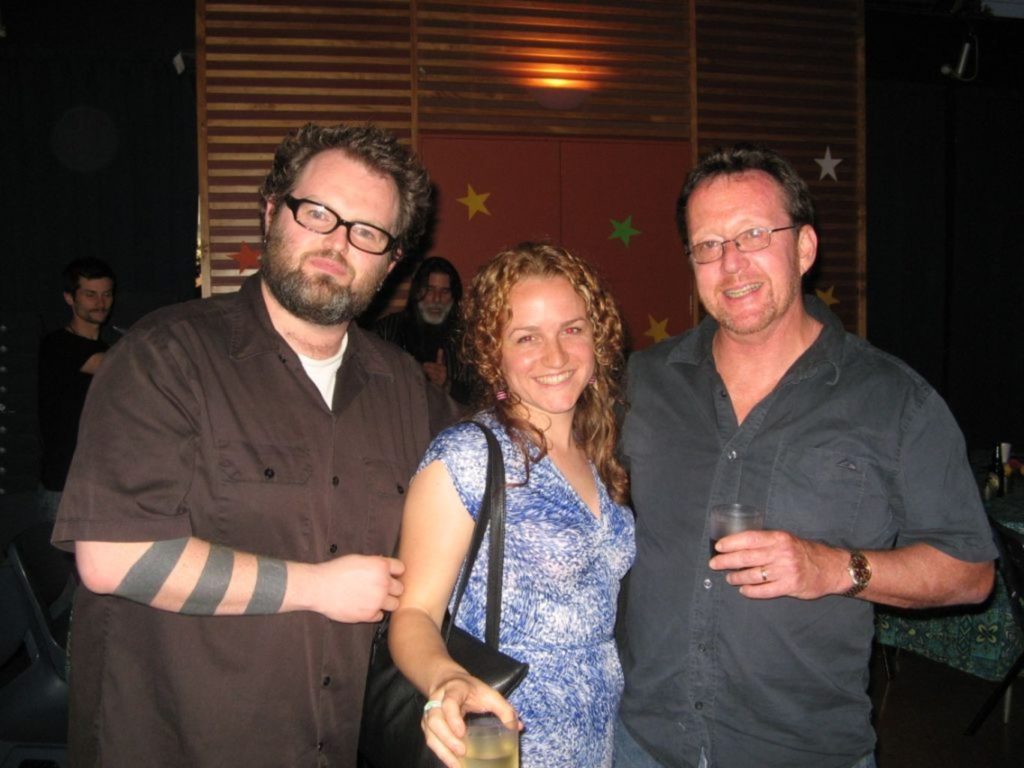A lot has been made in recent times about the dark and pernicious side of ideology, particularly its ability to incite hate or dispute obvious fact. In that regard there has been much discussion of political ideologies, particularly national populism such as that practiced by the likes of Viktor Orban, Rodrigo Dutarte, Jose Bolsonaro and Donald Tump. In fact, “Trumpism†is synonymous with a combination of ignorance, arrogance and bullsh*tting bluster all rolled into one racist, bigoted, xenophobic, ball-of-hate worldview. However, although the subject of national populism is topical, the discussion about ideology extends into fields other than the political, even reaching into debate about what properly constitutes “scientific†reasoning and discourse. As a way of framing how to understand what ideology is as an intellectual construct rather than just a set of ideas about the organization of particular things, please humour me this indulgence.
Ideology is a product of the imagination, a construction of the mind. Unlike flights of fancy and other ideational inventions and to be specific, an ideology is a coherent set of value principles that organises reality over time and specifies the relationship between the imaginary and the real. The imaginary is what is ideal, preferred, unknown, inexplicable and/or fantastic. Reality is the material, physical and social conditions in which we exist. Ideology is the glue that binds them together in human consciousness. It is not just some random assortment of ideas and opinions. It is an intellectual framework for interpreting the world around us.
We come into the world hard-wired but tabula rasa, and over time we are conditioned, schooled, instructed and otherwise taught about the ways things are either by direct experience or imparted knowledge. In that light ideology serves as an interpretative device that explains the connection between lived or actual experience and how things can, were and should be. Taken over time and as Gramsci once noted, passing through a “complex tissue of vulgarisations to emerge as common sense,” ideology defines how we see the world around us and our position and role in it.
Think of it this way. What is considered “unimaginable” is so only because of what we are. What makes science fiction creatures and worlds “alien†and “fantastic†is that they are not materially like us or anything in our collective existence. Our imagination not only processes what is materially and physically real in our world but also frames how we imagine that which is not observable in our reality. To paraphrase something that Rod Sterling of “Twilight Zone†TV show fame said in the mid 60s, “fantasy is translating the impossible into the improbable; science fiction is the improbable translated into the possible.†We address what is real and unreal based on mental constructs, not on immutable laws even if we render homage to divinity or the mysterious workings of Mother Nature and the Universe in general.
There is a difference between ideational and ideological. Ideational refers to how we perceive the world we know and what lies beyond. Ideological refers to how we interpret that which is around and ahead of us.
Ideology explains realities to ourselves as well as the infinite possibilities that may exist beyond us. It is ideational in origin and its practical result is organisational: it serves to explain, categorise and regulate human society and the physical world in which it exists, and separates what can be known in human terms from that which is imaginable but unknowable. Broadly speaking, I refer here to ideologies that primarily address the physical and material world in which we live as scientific; and those that address the human condition as social.
In Carl Sagan’s (1996) words, “(s)cience is more than a body of knowledge. It’s a way of thinking, a way of skeptically interrogating the universe with a fine understanding of human fallibility,” For the physical world, scientific ideology is the belief in employing a particular type of methodology for achieving observable, reproducible, objective and therefore predictable results, which in turn lead to classifications of physical phenomena based on their shared and unique characteristics. That allows humans to comprehend the world in and around them.
Taxonomies are one such means of doing so. They identify, separate and classify natural phenomena based on reproducible facts. This is generally considered the realm of so-called “Western†science although the appellation is a misnomer given the scientific observations of pre-modern Arabs, Chinese and Persians and a range of indigenous peoples as well as Greeks and Romans and their European successors. The “scientific method†employed by these cultures varied in their specifics but sought to produce the same thing: value neutral organising, explaining and predicting when possible the nature of things.
This has led to some interesting ways of thinking. For example, “Borges proposed a very peculiar animal classification system. He attributed it to a certain unknown, apocryphal Chinese encyclopedia, entitled Celestial Emporium of Benevolent Knowledge. It divides animals into: “(a) those that belong to the Emperor, (b) embalmed ones, (c) those that are trained, (d) suckling pigs, (e) mermaids, (f) fabulous ones, (g) stray dogs, (h) those that are included in the present classification, (i) those that tremble as if they are mad, (j) innumerable ones, (k) those drawn with a very fine camel hair brush, (l) others, (m) those that have just broken a flower vase, (n) those that look like flies from a long way off†(Cited here).
While undoubtably true in whole or in part, the trouble for Borges is that while his zoology may have elements of scientific fact, his classification is not reproducible and in some cases, not observable or predictable. In is therefore invalid as a Western scientific ideology even though it provides a good study in contrasting approaches to ways of thinking involving scientific observation. And, if one is agnostic about such things, it can be considered as valid as any other way in which to classify the animal world. I mean, what animal does not look like a fly when seen from a long way off?
Given the possibility of variance in observable classification, many taxonomies developed by scientific indigenous cultures are founded on ideologies based on reproducible facts. These are different than myths and legends derived from, tangental to or substitutive of observable natural phenomena. The methods used to develop indigenous science ideologies may not be exactly those of the “West,†but in the measure that explain and in some cases predict the physical world they can be considered to be a type of scientific ideology. They originate in the mind in order to explain material reality and therefore share the same ideational origins of those in the West. This shared value can be called positivism or objectivism—the grounding of explanation in concrete material facts. Everything after that is a question of which approach is more accurate or best explains a given phenomenon.
Social ideologies are less precise than scientific ideologies when it comes to methodological foundations. The emphasis of social ideologies is not on categorising observable, reproducible and predictable phenomena over time (even if some so-called social sciences attempt to do so by replicating quasi-scientific methodologies). Social ideologies seek to explain the connection between actual and preferred human society. The posit the relationship between the real and the ideal, what is and what should be, and the penalties for transgression. They are, in other words, normative in nature.
They can be religious (to include atheism as a belief in the negation of divinity) or secular. Since religious ideologies reduce human agency to subordination to Divine will, they will be not be elaborated upon here. Suffice to say that like all social ideologies they are a means of imposing social conformity and control, ostensibly under Godly direction. I shall leave it at that.
Secular social ideologies can be divided into political ideologies like Fascism, Marxism, Leninism, Liberalism, Libertarianism, Maoism, Communism, Social Democracy, National Populism and anarchism; economic ideologies such as socialism, capitalism and variants such as neoliberalism, welfare statism, market capitalism or state capitalism; managerial ideologies like Fordism and Taylorism and their sub-groups; cultural ideologies like feminism, vegetarianism, racism, (whatever its particular manifestation), speciesism, communitarianism, ecologism and environmentalism; artistic such as cubism, surrealism, impressionism and many other variants to “plastic†expression—the list of approaches to interpreting social reality is not meant to be exhaustive as to type of human endeavour or approaches to them but to illustrate that all “schools of thought†are just that—someone thought them up in order to explain (at least some aspects of) human behaviour.
Think about how we conceive of work, play, sports, commodification (which itself is ideational derived from larger ideas), the calendar versus 40 hour week, etc. This is not given by nature. It is thought up by people trying to understand and gain some measure of control over the world around them.
This may all seem like high school philosophy 101 or David Seymour regaling members of the Lindsay Perigo appreciation society during a circle group-grip youth session about the finer points of Ann Rand’s thought, but the point here is to reinforce the fact that how we view the world is a product of the imagination. It is in a sense a subjective interpretation—even if scientific–of the world around us given the constraints of human physiology, intellect and consciousness. The subjective assessment of objective phenomena is especially true for social ideologies. What differentiates between the latter is not their origins (in the human mind) but in the consequences of their application.
For example, consider collectivist versus individualist conceptualizations of the preferred social order. One starts with the assumption that the individual matters more than the collective or vice versa, and everything that follows originates with that idea. These ideological starting points are value neutral. It is in their application in real life where they acquire positive or negative worth. In other words, the idea(s) behind a given “ism†may be all be equally good in intent or neutral in principle, but it is in their implementation and outcomes where their differences are most heavily felt.
That is what make social ideologies “good†or “bad†in the subjective eye. The more holistic they are, the more prescriptive they are, the more comprehensive and certain that they claim to be, the more controlling that they will be. The more controlling they are, the more dictatorial their implementation given the variety of human opinion on any given subject. The more controlling and authoritarian that ideologies are in practice, the more restrictive of human freedoms they become.
Conversely, the less organizational and prescriptive in focus, the more an ideology becomes a license to excess, disorder and chaos. Again, that is a subjective interpretation based on the value preferences of this author, not any immutable law.
Once we accept the fact that all of how we interpret the world and beyond is rooted in the depths of the imagination, the easier it is to understand that truth is subjective rather than objective. The process is two-fold: first, in the assumptions and methods imagined in order to interpret reality; and second, the prescriptions and conclusions drawn from those interpretations. The assumptions and methods used are pre-modern, modern or post-modern in nature because they are born of the moment in which they are imagined by real people living in real time, even when looking to the future or past. So are their prescriptions and conclusions.
This is what makes me a relativist rather than an absolutist when it comes to social thought. Not that I believe that all ideologies are to be considered intellectually relative to each other or that there are no absolutes in life. I simply understand that when it comes to ideation and ideology, what is relative is the absolute value that we put into any given “ism.â€


